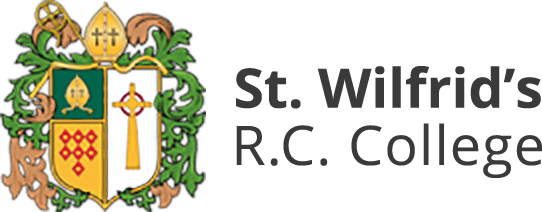Our Science education provides the foundations for understanding the world. Science changes our lives and is vital to the world’s future prosperity. Through science education, students learn to recognise the power of rational explanation and develop a sense of excitement and curiosity about natural phenomena. They are encouraged to understand how science can be used to explain what is occurring, predict how things will behave, and analyse causes. This understanding allows students to develop and reach their God-given potential. Gospel values underpin the science curriculum by developing students’ understanding of the world outside of their local community, through their study of natural scientific processes, and development of their critical thinking skills.
The majority of our students join us having covered all aspects of the Key Stage 2 curriculum in one of our Trust primaries. We build on their scientific knowledge and understanding to develop key subject specific skill and support the wider whole school priorities. Our KS3 curriculum for science aims to ensure that all pupils:
Develop scientific knowledge and conceptual understanding through the specific disciplines of biology, chemistry and physics. Our schemes of work aim to give students an understanding of the key big ideas in science: the links between structure and function in living organisms, the particulate model as the key to understanding the properties and interactions of matter in all its forms, and the resources and means of transfer of energy as key determinants of all of these interactions.
Develop understanding of the nature, processes and methods of science through different types of science enquiries that help them to answer scientific questions about the world around them. Students are taught about Working Scientifically through a range of practical investigations that are always clearly related to the science content in the programme of study. Students develop key practical skills such as use of microscopes, safe handling of chemicals and basic equipment to carry out simple chemical reactions and measurements of time, distance and forces in different contexts.
Are equipped with the scientific knowledge required to understand the uses and implications of science, today and for the future. In particular, we teach students to be critical about information and to evaluate strategies and behaviours that could have an impact on the environment. We take opportunities to incorporate topical issues into our teaching; our teaching promotes STEM careers and includes a local context. South Shields has a thriving manufacturing industry
Our curriculum is ordered in a way that ensures key pieces of substituent knowledge are delivered in a sequence to aide understanding and progress throughout the curriculum. Recurring themes are delivered in greater depth as students progress through the key stages.
Students build on their ability to work scientifically throughout the curriculum. Opportunities for students to manipulate and analyse data, plan and participate in practical activities and communicate their scientific ideas are planned at regular intervals through the curriculum. In addition to subject specific knowledge, and skills, the science curriculum supports the wider school intent of developing our students as expert readers and ‘writing like a scientist…’.
Students are assessed regularly both formatively and summatively throughout the curriculum. Formative assessment takes place in a range of styles to ensure that teachers understanding the needs of each individual in their care and adapt their planning accordingly.
Our assessment structure at Key Stage 3 has recently evolved to assess students in three areas:
Part 1: Surface: demonstration of surface knowledge of key concepts and skills
Part 2: Deep: application to familiar context demonstration deep understanding/extension of key concepts
Part 3: Transfer: application to unfamiliar context, applying deep knowledge to new scenarios
Our students are provided with the opportunity to develop beyond the curriculum. All students have the opportunity to attend STEM clubs in which they explore areas linked to the curriculum in more depth. Students are also provided with the opportunity to gain a qualification in STEM leadership outside or curriculum time.
BCCET EYFS to KS2 Science Narrative
BCCET EYFS to KS2 Science Overview


